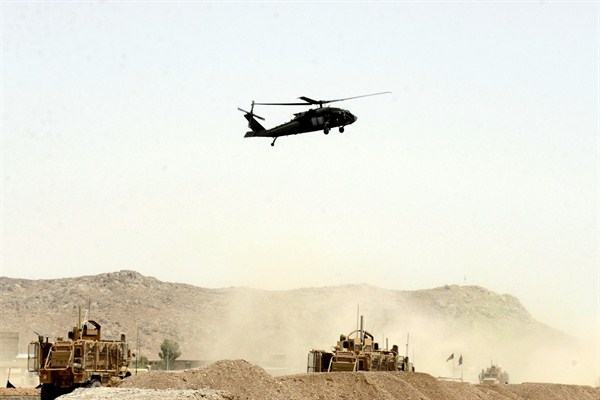Editor’s note: Guest columnist Sarah Kreps is filling in for Steven Metz, who will be back next week.
In the book that introduced the phrase “Catch-22,” the novelist Joseph Heller outlined a fundamental paradox of a fictional war: To be qualified to fly a bombing mission behind enemy lines, an individual had to be sane. But while no sane individual would expose themselves to that kind of suicide mission, asking to be grounded—because you’re crazy and can’t fly—revealed the mind of a rational individual, so he would have to fly more missions.
Modern American wars now have their own Catch-22 that has produced a seemingly endless cycle of conflict. The fulcrum for this current-day version is the American public. In recent wars, the public has become a mere spectator both in terms of process and outcome. People rarely see the direct burden of war in blood or treasure, and many are apathetic about its cost and duration. Yet the government cannot ask them to sacrifice on behalf of a war because the public might scrutinize that war more closely, not like what it sees and want to end it. The consequence is that wars—from Vietnam to Afghanistan—have become unaccountable and open-ended.

